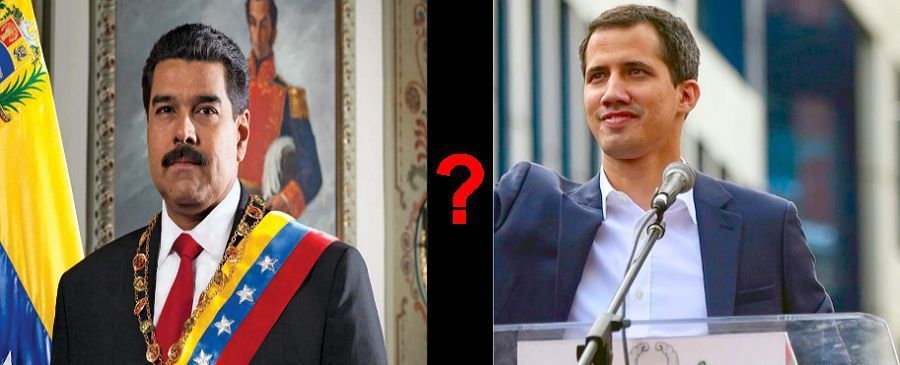TWO PRESIDENTS AT THE HEAD OF VENEZUELA |
|
| Opposition President Juan Guaido proclaimed himself "Acting President" of the Latin American country on Wednesday. The United States and its allies have recognized it, but President Nicolas Maduro, as well as other countries, denounce a coup organized by Washington.
Events have rushed in this country undermined by hyperinflation, food shortages, dependent on its oil rent and subject to heavy penalties. Nicolas Maduro, heavyweight of the Chavista regime, was re-elected in May 2018 with 68%. The elected President was sworn in on January 10, 2019 for this new term. But the opposition challenged the polls, denouncing irregularities and pressure on voters so that the National Assembly, headed by Juan Guaido, declared illegitimate this new mandate from January 5. And Wednesday, January 23, President of the Venezuelan Parliament Juan Guaido has proclaimed himself "president" ad interim. "I swear to formally assume the powers of the national executive as president-in-office of Venezuela to achieve (...) a transitional government and obtain free elections," Juan Guaido said Wednesday in front of tens of thousands of supporters gathered in Caracas. This is the most acute political crisis in Venezula's recent history. This unprecedented political situation provokes violent clashes between opponents and supporters of Nicolas Maduro's regime, Juan Guaido, self-proclaimed president, supported by the United States and its allies in the region. After the self-proclamation of the president of the Venezuelan parliament many countries have recognized him as interim president of Venezuela. Donald Trump immediately announced in a statement that he officially recognized Juan Guaido as "interim president of Venezuela". "Today, I officially recognize the president of the Venezuelan National Assembly, Juan Guaido, as interim president of Venezuela," he said. Believing that the National Assembly was "the only legitimate branch of the government," Trump recalls that the latter declared President Nicolas Maduro "illegitimate". "The people of Venezuela bravely spoke against Maduro and his regime and demanded freedom and the rule of law. I will continue to use all the economic and diplomatic power of the United States to push for the restoration of Venezuelan democracy. "Said the tenant of the White House. Canada, Colombia and Brazil, Washington's allies in the region, have followed suit, as well as Argentina, Chile, Paraguay and the Secretary General of the Organization of American States (OAS), Luis Almagro. Nicolas Maduros, president-elect, supported by China and Russia For its part, the Chavist power denounced "an attempted fascist coup" fomented from the United States. Inside, President Maduro can count on the support of the Venezuelan army. "We, soldiers of the homeland, do not accept a president imposed in the shadow of obscure interests or self-proclaimed in the margins of the law. The army defends our Constitution and is the guarantor of national sovereignty, "the defense minister wrote on Twitter. Outside China and Russia, both permanent members of the UN Security Council, supported him. "Destructive foreign interference, especially in the current extremely tense situation, is unacceptable (...) This is a direct path to arbitrariness and bloodshed, "said the Russian Foreign Ministry. Cuba, led by President Miguel Díaz-Canel, Mexico's leftist President Andrés Manuel Lopez Obrador Bolivia's Socialist Evo Morales also supported the Chavista president. On this historic date, which commemorates the 61st anniversary of the fall of the Marcos Perez Jimenez dictatorship, on 23 January 1958, opponents and supporters of the Socialist president wish to count their strength. Violent clashes erupted causing seven deaths. Donald Trump assured that "all options" were on the table if Nicolas Maduro resorted to force against opposition protests. |
|
| Alize Marion for DayNewsWorld | |
 |
|




